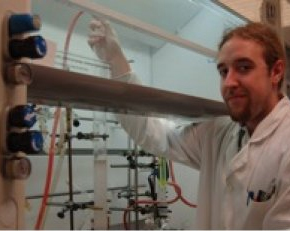Teaching Degree in Chemistry
Students considering becoming a teacher understand the importance of education, and the immense responsibility that comes with teaching a new generation of children. Good teachers hope to inspire their students to want to learn more, and understand that nurturing this desire means their students become active learners, and not simply bodies in seats sitting through a lecture. Chemistry teachers help to guide students in discovering the beauty of the atom, the complex relationship that exists between all of the elements found in the universe, and the endless possibilities that can be achieved through chemistry
Overview of a Teaching Degree in Chemistry
A teaching degree in chemistry provides students the training they need to connect with the classroom, while providing them the background information they need to teach chemistry. Students who graduate from college with a teaching degree in chemistry have a very good chance of finding employment at the high school level. Students who are considering entering a program to obtain their teaching degree in chemistry will generally need to meet certain basic requirements.
- Students must meet the minimum GPA or ACT composite score the program requires when entering out of high school. The minimum requirement will vary by program, and students should check with the admissions office of their college of choice to determine what their program requires.
- Students with existing college credits who want to transfer into a program to obtain their teaching degree in chemistry will need to meet the program’s minimum GPA requirements with the courses they have previously completed.
- Students may need to complete a teaching minor as part of their overall degree process.
Teaching Degree in Chemistry Course Curriculum
Students seeking to obtain their degree in chemistry will take a course curriculum that incorporates the basics of both education and chemistry. Students will learn fundamental concepts behind the principles of chemistry, quantitative analysis, organic chemistry, and biochemistry, and the basic principles of biology, physics and laboratory methods for quantitative analysis and measurement. Students will also receive instruction in psychology, learning and development, secondary education, curriculum instruction, lesson planning, classroom assessment, classroom management, and special education training. Combined, these courses will give aspiring teacher the tools they need to succeed in the classroom.
Certification Needed to Teach After Obtaining a Teaching Degree in Chemistry
Teacher certification requires will vary by state, and students should consult with their school’s counselors or the program office when determine what certification requirements they must satisfy. In California and Oregon, for example, students must complete a bachelor’s degree, and pass the California Basic Educational Skills Test (CBEST) before they can obtain their teaching certificate. Students are also required to complete a teacher preparation program that includes serving time as a student teacher. The state of Utah, however, requires a bachelors degree for a level 1 teacher certification that is valid for four years as long as the individual teaches for three of the four years. Some states also require a fingerprint background check before issuing a teacher certificate.

